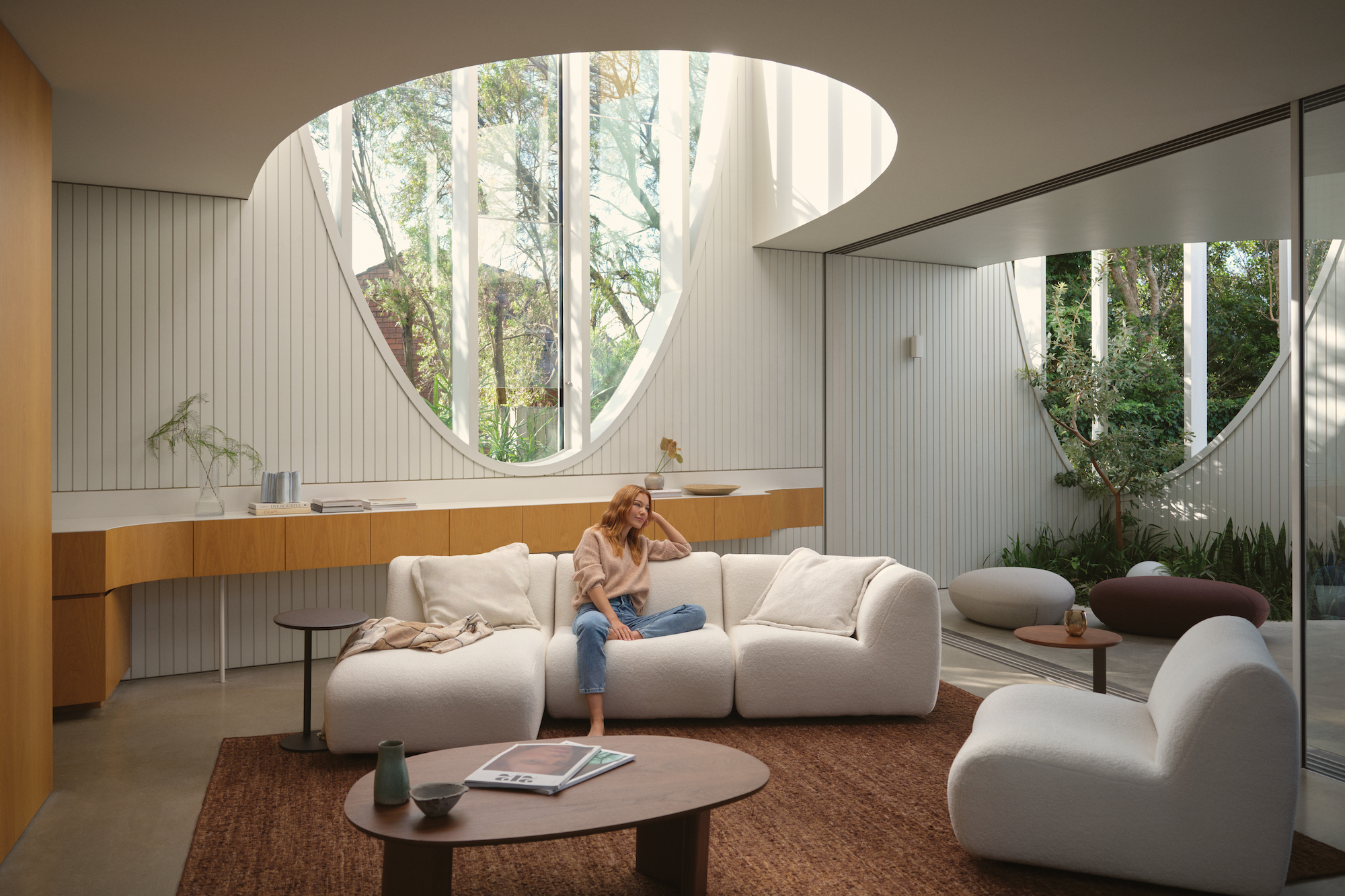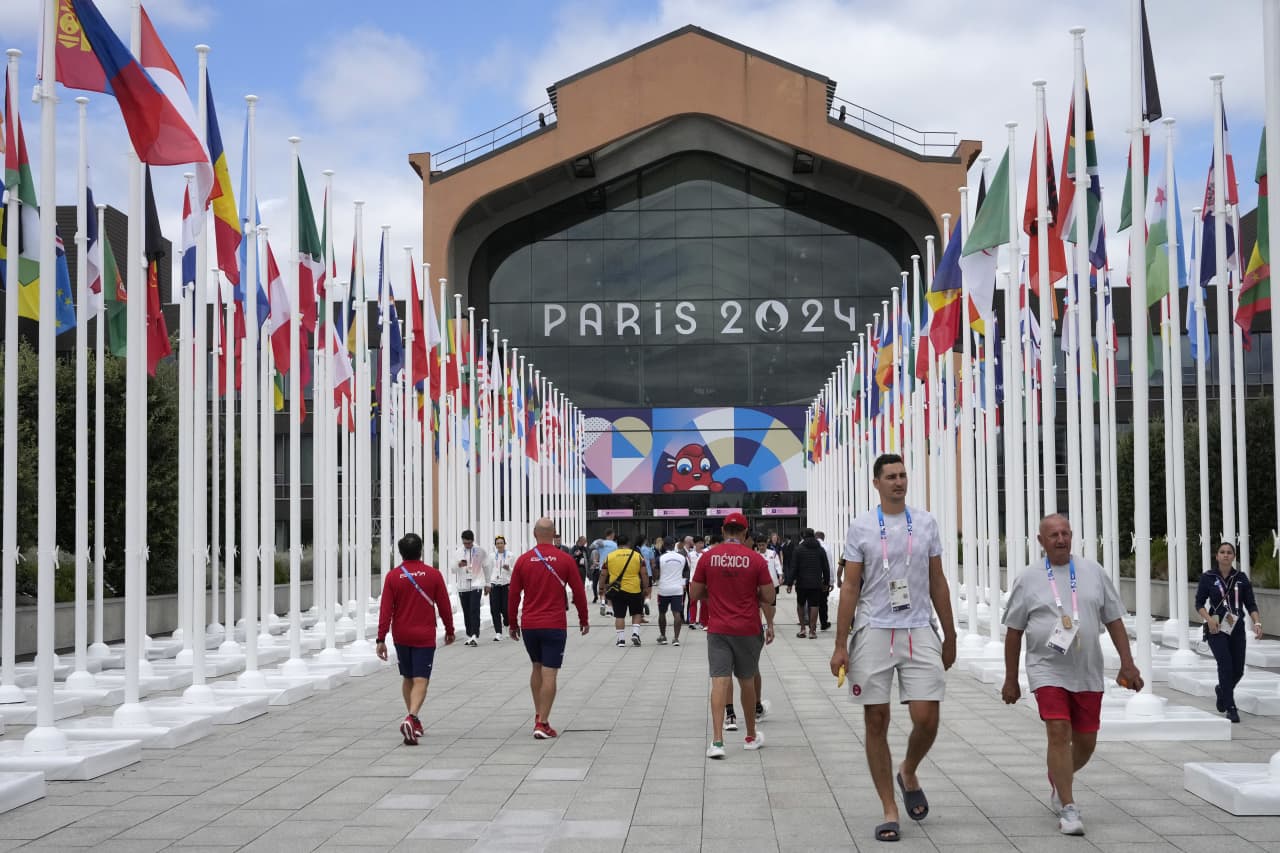When the newly appointed CEO of King Living, David Woollcott, first started with the Australian furniture retailer last year, he admits he was puzzled by the price point for their popular range of sofas.
“I was questioning why we don’t charge more for our product,” he said. “With the Jasper (sofa), which starts from around $4000, we could charge $7000 or $8000.”
The galvanised steel-framed sofas, which come with a 25-year warranty, have a strong following in Australia where they are a popular choice for those looking for affordable style that will last. The range includes sofas and armchairs in a variety of styles designed to be flexible enough to suit any space, or lifestyle, at a price point that is deliberately accessible.

Central to the success of King Living, which started as a mother and son enterprise with David King and his mother Gwen in the 1970s, has been the decision to keep design, manufacturing and retailing under the one roof. Woollcott said it places King Living in a rare position in the market.
“We are in control, which is exciting for the consumer,” he said. “We know how our product is made and where the materials are sourced and we are acting as one entity. That instils trust.”
It also means there are no additional players looking to add further costs.
“We don’t support a third party, so the additional margin we invest in quality,” he said.
King Living has marked their time in the Australian market with the re-release of its first piece of furniture, now known as the 1977 sofa. A surprisingly contemporary-looking chair designed to be ‘built’ piece by piece to create a modular sofa of your choice to suit small or large spaces, it embodies the kind of relaxed elegance Australian design has become known for.

It’s a design aesthetic and business model Woollcott said has been embraced as King Living expanded into markets in Singapore and Europe in recent years with North America to follow.
“What delineates us is that we are a designer, manufacturer and retailer of furniture — that is really unique,” he said. “There are many businesses who do the retail bit and they source from factories around the world. But we are in control, which is exciting for the consumer.”
While the size of living spaces vary significantly across Europe, Asia and North America, Woollcott said there is enough variation and flexibility in the range to accommodate customers’ needs, whether it is the generous proportions of the Jasper and Kato sofas or the more compact Aura and Fleur designs. While best known for their sofas, King Living also has an extensive range of dining furniture, as well as beds, floorcoverings, lighting and storage options. Their outdoor furniture range is also gaining a strong following, taking the same approach to the design and construction of their interior furniture and translating it for outdoor spaces.
And it’s not just the Australian market taking notice.
“Australian design is globally loved because it has a casual nature to it,” he said. “It’s informal, which doesn’t mean it is less sophisticated or less detailed.
“Coming from the UK where it is all about the class structure and formality, Australia is the antithesis. It’s warm, approachable and casual.”

Having spent the past five years in Europe as managing director of Fisher & Paykel UK & Europe, Woollcott is aware that customers are increasingly concerned about the sustainability of their products. The ‘reduce, reuse and recycle’ ethos is nothing new to King Living, he said.
“What stunned me when I met (founder) David King, they have acted sustainably from day one because they have made that link with waste not being a good thing,” he said. “It’s all about resources. I don’t think there would be a business leader out there who would not see the link between preserving resources and saving money.”
King Living also offers their King Care service, a commitment to recover or completely refurbish sofas for a cost, whether they were manufactured in 1977 or 2023.
While it may seem like a lot of fuss over a sofa, Woollcott noted that this key piece of furniture is often the backdrop to family life for years.
“Memories are made on our furniture and the sofa can end up becoming a member of the family,” he said. “Our furniture is designed to last for generations — and to be reconditioned.
“They take on a personality of their own.”
What a quarter-million dollars gets you in the western capital.
Alexandre de Betak and his wife are focusing on their most personal project yet.
As Paris makes its final preparations for the Olympic games, its residents are busy with their own—packing their suitcases, confirming their reservations, and getting out of town.
Worried about the hordes of crowds and overall chaos the Olympics could bring, Parisians are fleeing the city in droves and inundating resort cities around the country. Hotels and holiday rentals in some of France’s most popular vacation destinations—from the French Riviera in the south to the beaches of Normandy in the north—say they are expecting massive crowds this year in advance of the Olympics. The games will run from July 26-Aug. 1.
“It’s already a major holiday season for us, and beyond that, we have the Olympics,” says Stéphane Personeni, general manager of the Lily of the Valley hotel in Saint Tropez. “People began booking early this year.”
Personeni’s hotel typically has no issues filling its rooms each summer—by May of each year, the luxury hotel typically finds itself completely booked out for the months of July and August. But this year, the 53-room hotel began filling up for summer reservations in February.
“We told our regular guests that everything—hotels, apartments, villas—are going to be hard to find this summer,” Personeni says. His neighbours around Saint Tropez say they’re similarly booked up.
As of March, the online marketplace Gens de Confiance (“Trusted People”), saw a 50% increase in reservations from Parisians seeking vacation rentals outside the capital during the Olympics.
Already, August is a popular vacation time for the French. With a minimum of five weeks of vacation mandated by law, many decide to take the entire month off, renting out villas in beachside destinations for longer periods.
But beyond the typical August travel, the Olympics are having a real impact, says Bertille Marchal, a spokesperson for Gens de Confiance.
“We’ve seen nearly three times more reservations for the dates of the Olympics than the following two weeks,” Marchal says. “The increase is definitely linked to the Olympic Games.”

Getty Images
According to the site, the most sought-out vacation destinations are Morbihan and Loire-Atlantique, a seaside region in the northwest; le Var, a coastal area within the southeast of France along the Côte d’Azur; and the island of Corsica in the Mediterranean.
Meanwhile, the Olympics haven’t necessarily been a boon to foreign tourism in the country. Many tourists who might have otherwise come to France are avoiding it this year in favour of other European capitals. In Paris, demand for stays at high-end hotels has collapsed, with bookings down 50% in July compared to last year, according to UMIH Prestige, which represents hotels charging at least €800 ($865) a night for rooms.
Earlier this year, high-end restaurants and concierges said the Olympics might even be an opportunity to score a hard-get-seat at the city’s fine dining.
In the Occitanie region in southwest France, the overall number of reservations this summer hasn’t changed much from last year, says Vincent Gare, president of the regional tourism committee there.
“But looking further at the numbers, we do see an increase in the clientele coming from the Paris region,” Gare told Le Figaro, noting that the increase in reservations has fallen directly on the dates of the Olympic games.
Michel Barré, a retiree living in Paris’s Le Marais neighbourhood, is one of those opting for the beach rather than the opening ceremony. In January, he booked a stay in Normandy for two weeks.
“Even though it’s a major European capital, Paris is still a small city—it’s a massive effort to host all of these events,” Barré says. “The Olympics are going to be a mess.”
More than anything, he just wants some calm after an event-filled summer in Paris, which just before the Olympics experienced the drama of a snap election called by Macron.
“It’s been a hectic summer here,” he says.

AFP via Getty Images
Parisians—Barré included—feel that the city, by over-catering to its tourists, is driving out many residents.
Parts of the Seine—usually one of the most popular summertime hangout spots —have been closed off for weeks as the city installs bleachers and Olympics signage. In certain neighbourhoods, residents will need to scan a QR code with police to access their own apartments. And from the Olympics to Sept. 8, Paris is nearly doubling the price of transit tickets from €2.15 to €4 per ride.
The city’s clear willingness to capitalise on its tourists has motivated some residents to do the same. In March, the number of active Airbnb listings in Paris reached an all-time high as hosts rushed to list their apartments. Listings grew 40% from the same time last year, according to the company.
With their regular clients taking off, Parisian restaurants and merchants are complaining that business is down.
“Are there any Parisians left in Paris?” Alaine Fontaine, president of the restaurant industry association, told the radio station Franceinfo on Sunday. “For the last three weeks, there haven’t been any here.”
Still, for all the talk of those leaving, there are plenty who have decided to stick around.
Jay Swanson, an American expat and YouTuber, can’t imagine leaving during the Olympics—he secured his tickets to see ping pong and volleyball last year. He’s also less concerned about the crowds and road closures than others, having just put together a series of videos explaining how to navigate Paris during the games.
“It’s been 100 years since the Games came to Paris; when else will we get a chance to host the world like this?” Swanson says. “So many Parisians are leaving and tourism is down, so not only will it be quiet but the only people left will be here for a party.”











